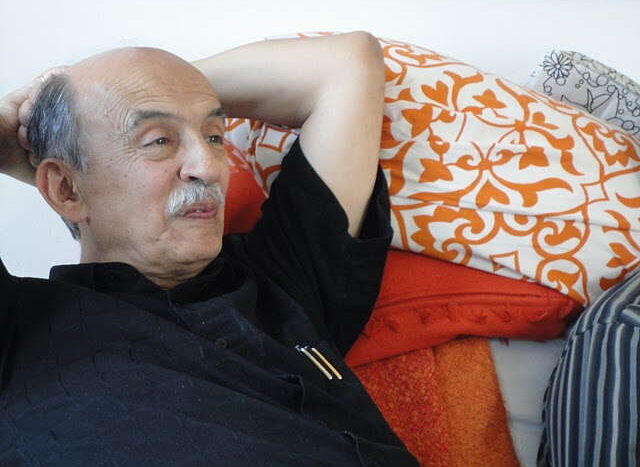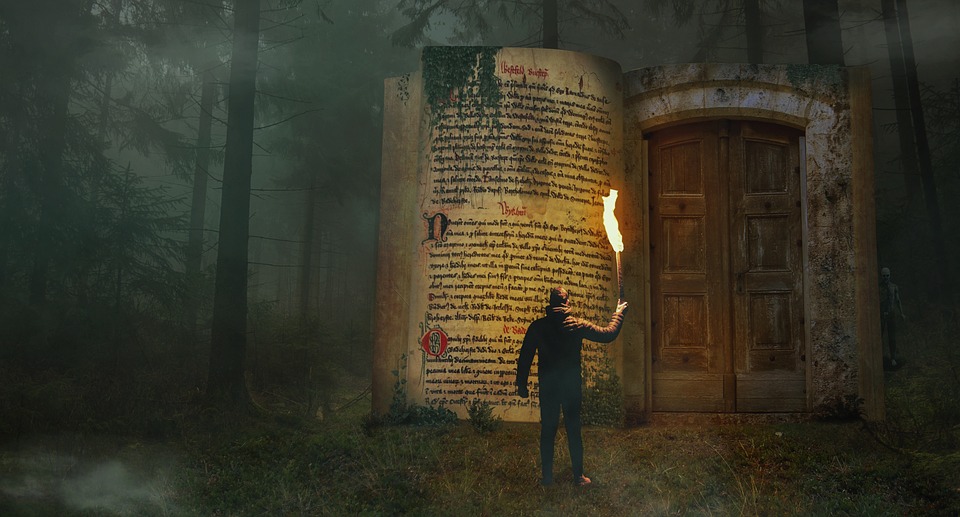The early hours of Thursday the 28th brought terribly sad news regarding one of Colombia’s best-known journalists.

Mónica del Pilar Uribe Marín
Only a few weeks earlier on October 4th, he had travelled to a small town in Southern United States, because the Lannan Foundation had granted him a Scholarship for Literary Creation.
There in the heart of Texas desert Fernando had dedicated himself until 17th December this year to what would become his only duty – finishing a book.
“I have three books underway, all literary, that I am sure I will be able to put forward and hopefully finish”, he wrote to his friends before his departure. This was not doable. As he drove along a road leading to Texas, his journey was irrefutably and eternally turned around. His works are now frozen in time, and his principles and whole life with them. The wings of Fernando Garavito, best known as ‘Juan Mosca’ were crushed.
He had been a journalist; a writer; the bold one; a friend of the past or the present, or of the present and the past; the mysterious one, the feared one, the one whom the hate of his enemies had forced into exile to the United States. He will now evoke a new kind of memory.
 His exile and the Mosca Movement
His exile and the Mosca Movement
Fernando Garavito, tireless at 66, continued to write and speak of the adverse conditions that his 8 years in exile had imposed on him: leaving his country, Colombia, and in it his friends, his family, his oldest daughter Melibea (from his first marriage with the also deceased poet María Mercedes Carranza), and his work. All so the threats hanging over him wouldn’t materialize.
The most difficult part was losing Priscilla Welton, his life companion and the mother of Fernando and Manuela. All of this had plunged him into an understandable and deep sadness. It was his children who gave him his strength. It was because of them, because of the love they inspired in him, that he didn’t cease to express himself. Fernando was full of life: his rebellion was intact, his creativity was shining, and he was a perfectionist in his work. His criticism was sharp, his opinions were brave, his quest was resolute, and he supported anyone who needed him.
 Fernando had lived a very full life. He had been an editor and director of various forms of media, the author of 14 books (prose and poetry), a children’s teacher (something that not all of his readership know) and finally, without abandoning his literature, he became the chief Mosca of the PoloMosca association, an association created by Columbians living all over the world. The association saw no ranks and from the beginning wanted to create its own rules, both within and outside the The Alternative Democratic Pole, PDA. It was in fact because of his honesty, his hate of political manoeuvring, and his desire for real change, that Fernando, after being asked by friends, decided to become a candidate for the House of Representatives of exiled Columbians, the PDA.
Fernando had lived a very full life. He had been an editor and director of various forms of media, the author of 14 books (prose and poetry), a children’s teacher (something that not all of his readership know) and finally, without abandoning his literature, he became the chief Mosca of the PoloMosca association, an association created by Columbians living all over the world. The association saw no ranks and from the beginning wanted to create its own rules, both within and outside the The Alternative Democratic Pole, PDA. It was in fact because of his honesty, his hate of political manoeuvring, and his desire for real change, that Fernando, after being asked by friends, decided to become a candidate for the House of Representatives of exiled Columbians, the PDA.
He didn’t win, but that didn’t matter. He carried his pseudonym and had already started a movement – PoloMosca – and that was enough. He put all his effort and affection into it, and maintained the need for a different kind of politics and that rank, directorship and leading roles should be forgotten. He insisted on the need to genuinely apply democracy, to have honesty as the driving force and to grant each member their own worth. It therefore wasn’t hard to follow, appreciate and believe him.
He trained as a lawyer at the University of Javeriana, and in the The Espectador newspaper Fernando became the ‘Lord of the Flies’. With his column of the same name he brought about hostility and made enemies. He would be known as ‘Juan Mosca’ from then on. His articles saw him as editorial manager or editor, or simply as writer, and instilled fear in many.
Something similar happened with ‘Álvaro Uribe, Lord of the Shadows’, but perhaps with expected consequences: threats, persecution, anonymous letters, all one after the other. Then the inevitable happened: he had to take exile in the United States. He took his wife Priscilla Welton and children Fernando and Manuela with him.
His article “Why do the perpetrators of the embezzlement of a nation, carried out through the bank of the pacific occupy the highest administrative positions in the new government of Presidente Uribe Vélez?” led The Espectador to sack him. This couldn’t, however, wipe away his accomplishments, such as receiving the “Cultural Freedom Award” (awarded by the Lannan Foundation for his work in favour of democracy and freedom, and for the respect of human rights.) Or the Prize of Journalism Simón Bolívar for his research into the Palace of Justice massacre, or even the recognition he received for his works ‘Ja’, “Juan Mosca’s reports”, “Country that hurts” and “the Heart of Gold’.
The hatred of those who condemned Fernando didn’t manage to detract him, and he continued to inspire.
It was thanks to him that many lived with him. With him they saw; they got to know; they experienced; dissented; learned; agreed and suggested. He had many close and distant friends, new and old allies, new and old enemies – all of whom his death will make shudder.
 It will be hard for those who knew him to forget his sense of humour; his ability to laugh at himself and others; his attentive way of looking at people when they spoke to him; his way of lavishing those who deserved it with compliments; his sometimes inopportune and passionate temperament; his instinct for good things and for those he shouldn’t trust; his wisdom and passion; his intelligence and his bravery.
It will be hard for those who knew him to forget his sense of humour; his ability to laugh at himself and others; his attentive way of looking at people when they spoke to him; his way of lavishing those who deserved it with compliments; his sometimes inopportune and passionate temperament; his instinct for good things and for those he shouldn’t trust; his wisdom and passion; his intelligence and his bravery.
What is certain is that Fernando Garavito, ’Juan Mosca’, will leave a legend in his works, his journalism and his work with PoloMosca.
Journalism in Colombia also now has void, and the colleagues who worked with him and knew him well, those who forged friendships with him, will certainly have learned something from him. We are so sorry that he is gone and know that we will continue to hear the flutter of his wings.
The Prisma extends its deepest condolences and solidarity to Fernando, Manuela, Melibea; his sympathizers; his friends, and the Moscas group. As Fernando said in such circumstances, words are useless because they don’t satisfy or calm enough.”
 Fernando gave one of his last interviews to The Prisma (the last to a form of media). It can be read in Spanish on Fernando Garavito, sin eufemismos or in English on Fernando Garavito, without euphemisms.
Fernando gave one of his last interviews to The Prisma (the last to a form of media). It can be read in Spanish on Fernando Garavito, sin eufemismos or in English on Fernando Garavito, without euphemisms.
THE WORK OF JUAN MOSCA
LITERATURE
‘Já’, avant-garde poetry. (1976).
‘‘Heart of Gold’ (1993) , literary journalism.
‘Eduardo Umaña Luna Biography , “maestro de maestros”
‘Banquete de Cronos’, antology
‘Antología sobre la obra de León de Greiff’.
‘Ilusiones y erecciones’.
REPORTS AND ARTICLES
Reportajes de Juan Mosca (1983).
Bogotá, ayer, hoy y mañana (1986).
País que duele (1996).
Álvaro Uribe, El señor de las sombras (Bogotá, 2002).
El vuelo de las moscas (2003).
Paramilitar para paramilitares (2006).
Praxis and Ambiguity of the Enemy (2007).
(Translated by Selma Seferovic – selma_sef4@hotmail.com)
Special supplement of ‘Juan Mosca’
Fernando Garavito dies: The departure of ‘Juan Mosca’ (English version)
Murió Fernando Garavito: La partida de ‘Juan Mosca’
Letter from ‘Polo Mosca’ to Fernando Garavito (English version)
“Prefiero la honestidad en todos sus órdenes”
Su polémica carta a la Georgetown University
Who are the ‘Moscas’? (English version)
Fernando Garavito, without euphemisms: The wings of ‘Juan Mosca’ (English version)













.jpg)












